by Chris Sparks
One time, I was riding in the car with my aunt and uncle in the east side of Washington state. We were returning from some event — can't remember what — but it was dark and as conversations tend to do on long car rides in the evening, we started talking about anything and everything. Somehow, the Holy Souls and their suffering in Purgatory came up. My uncle asked me a question about it — what did I think about Purgatory? Why was it necessary?
"Well," I said, "we're all wounded down here on earth, either from the effects of original sin, our own sins, or the sins of those around us. And in heaven we've got to keep up with the life and the love of God, which are perfect and healthy and alive. So Purgatory is like physical therapy. It can be really painful, but it gets us well and moving again."
I recall that when I compared Purgatory to physical therapy, my aunt and uncle immediately relaxed, as though some great weight had just lifted off their shoulders. I was surprised. I hadn't noticed them tense up.
"Oh!" said my aunt.
"That doesn't sound so bad," said my uncle. Even if it was painful, they agreed, Purgatory as physical therapy sounded more manageable than whatever they'd been imagining before.
The Church dedicates November to remembering the Holy Souls in Purgatory in prayer, a work of mercy that many Catholics have forgotten or have strange notions about. Indeed, Purgatory isn't some sinister weigh station (and way station) in which a wrathful God exacts punishment. Quite the contrary. It's a place of healing, first and foremost.
In Purgatory, we are healed of every tendency towards sin, every corruption, every ailment of mind and heart. We are taught how to die to self, how to surrender everything out of love, by suffering. True love, Godly love, is sacrifice. So the souls in Purgatory dwell in the school of suffering, learning how to make that sacrifice, how to live in love — and their greatest suffering is their longing for God. Their greatest joy is knowing that heaven is now assured to them.
And we here on earth can speed them on their way.
From the beginning the Church has honored the memory of the dead and offered prayers in suffrage for them, above all the Eucharistic sacrifice, so that, thus purified, they may attain the beatific vision of God. The Church also commends almsgiving, indulgences, and works of penance undertaken on behalf of the dead: 'Let us help and commemorate them. If Job's sons were purified by their father's sacrifice, why would we doubt that our offerings for the dead bring them some consolation? Let us not hesitate to help those who have died and to offer our prayers for them.' (CCC 1032)
When we pray for the dead and offer suffrages or sacrifices for them, we follow in the footsteps of one of the greatest leaders in the Old Testament.
Second Maccabees 12 tells us the story of the Jewish military leader Judas Maccabeus who discovered that some of his soldiers slain in battle had been wearing amulets of one of the pagan gods. Of course, they had violated the first of the Ten Commandments (the ban on worshipping other gods; Ex 20:2). So Judas led his army in prayer on behalf of those who had died in their sins. He then took up a collection from his living soldiers to pay for a sacrifice on behalf of the deceased.
The Bible goes on to say, "In doing this he acted in a very excellent and noble way, inasmuch as he had the resurrection in mind; for if he were not expecting the fallen to rise again, it would have been superfluous and foolish to pray for the dead. But if he did this with a view to the splendid reward that awaits those who had gone to rest in godliness, it was a holy and pious thought. Thus he made atonement for the dead that they might be absolved from their sin." (2 Macc 12:43-46)
"But that's not in the Protestant Bible!" your Protestant friends may say. Yes, it's true — because Martin Luther edited certain books out of the Old Testament, following the lead of Jewish scholars in the first century after Jesus. In both cases, it would seem that at least part of the motive for these revisions to Sacred Scripture was to expunge texts that so strongly supported Catholic teachings.
So this November, remember to pray the Rosary and the Chaplet of Divine Mercy for the Holy Souls. Do good works on their behalf and offer alms. Give a donation to your local parish and ask that Masses be said for the souls of those friends, family, and even enemies of yours who have died. In all things, trust in the mercy of God, in His generosity to those who pray with faith, and send help to those most in need of God's mercy, those who cannot lift a finger to help themselves: the Holy Souls in Purgatory.
To help the Holy Souls all year round, consider joining the Holy Souls Sodality, a group committed to praying for those in Purgatory.

